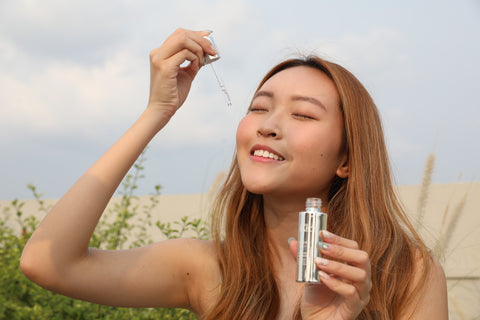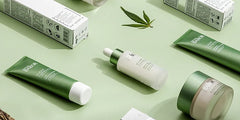Move Aside K-Beauty Brands, G-Beauty Is In

For the past few years, everyone has been jumping on the Korean wave thanks to the rise of K-pop and Korean dramas. The flawless complexions of Korean pop idols and actresses have helped to launch Korean Beauty or K-beauty products into the mainstream. Now K-beauty has a new contender in the market, G-beauty or German beauty, with its emphasis on simplicity and clean beauty.
What’s the difference, you may ask? We’ve rounded up the top 3 reasons why you should switch up from your K-beauty regimen and consider G-beauty products instead.German beauty keeps it simple
When you look at the range of German beauty products available on the market, the first thing that will catch your eye is the simplistic design of the products. In contrast, the packaging designs are often cutesy and over-the-top for Korean beauty products. Due to the intense competition between Korean skincare companies, they have to grab consumers’ attention by investing in a wide range of aesthetically pleasing designs to capitalise on enjoyable user experiences.
Korean beauty is also very dependent on trends and it is no secret that Korean society places emphasis on appearances. Korean people are very fashion-forward and are always looking for the next big thing through trendspotting and following the beauty regimens of popular celebrities.
However, trends such as the “glass skin” trend don’t last and you won’t get results through an inconsistent routine because skin care is a result of what you do over time. It’s like going to the gym once and expecting instant results. Sticking to a simplified and dependable routine, which is the core of G-beauty, is much more realistic and fuss-free than merely following trends.
German beauty is clean beauty

While K-beauty is known for its multi-step skincare routine, G-beauty products are usually straightforward and organic as well as created according to European standards, meaning that they do not contain toxins. A traditional Korean skincare regimen incorporates many steps such as pre-cleanse, cleanse, exfoliate, toner, essence, ampoule, face mask, eye cream, emulsion, and moisturising cream whereas a German skincare regimen focuses on the essentials and utilises active ingredients to produce targeted results.
A process that includes many different products with a variety of ingredients does not guarantee flawless skin and may not be worth the time, expense and effort you put in. Cleansing and moisturising are indeed essential steps in your beauty regimen but there is no point in using multiple treatments if you don't use the right ones designed specifically to target your skin problems.
This will not help improve your complexion and may even cause breakouts or even other negative side effects. Using G-beauty products with its emphasis on using non-toxic ingredients and reliance on German engineering will help to minimise the steps in your skincare routine and decrease irritation caused by harsh ingredients which can clog pores and sensitize skin.
German beauty is inclusive
While it is no doubt that Korean celebrities are admired for their flawless and beautiful skin, it is a well-known fact that Koreans have a specific idea of what beauty should be. There is a lot of emphasis on achieving dewy, firm skin and maintaining a fair complexion.
It is important to note that standards of beauty perpetuated by the Korean beauty industry aren't attainable for everyone, regardless of how much money you on products or how many steps there are in your skincare routine. German beauty, on the other hand, focuses on keeping your skin healthy and glowing from within.
Ultimately, G-beauty’s minimalistic focus and attention to detail, ensures that you will be getting the most out of your products. While K-beauty offers fancy designs and celebrity endorsements, G-beauty prefers the understated and classic beauty look by relying on tried-and-trusted ingredients and scientific research.
TOP READ


